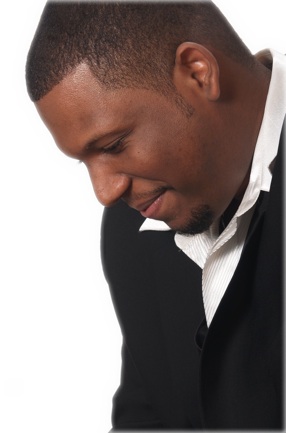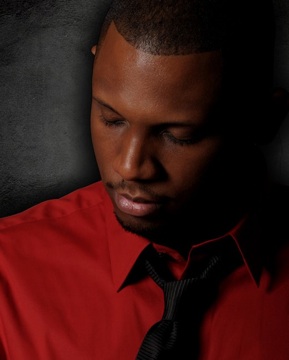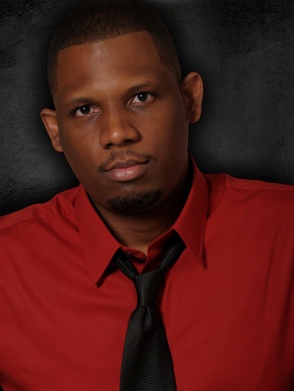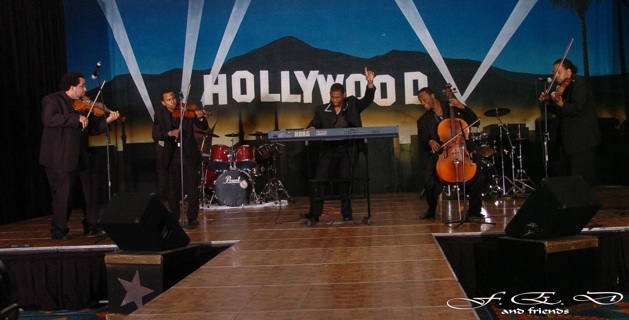As a reviewer and someone who listens to a LOT of new music, once in a while an album comes in that really makes me say “WOW!” F.E.D’s debut,
Awakening, had that effect on me. In corresponding with F.E.D (Frantz Eddy Daniel Jr.), I have been extremely impressed with his sincerity and drive as well as his humility and love for humanity. These qualities shine through in this interview, and it is with great pleasure that I introduce you to F.E.D!
KP: Congratulations on your fantastic debut, Awakening! I understand you spent two years in the studio recording it. That must have been kind of grueling!
F.E.D: Thanks very much Kathy! I appreciate it.
Yes, you are correct, it took me two years to put this project together and it was a difficult process for many reasons. First, since this was a self-funded project, finances were always a concern. Then we had to deal with finding the proper recording studio, technicians, and guest artists for this album. We also had to think about how we were going to try to expose this project to as many people as possible. So yes, it was very difficult putting all of this together.
KP: Do you have a home studio?
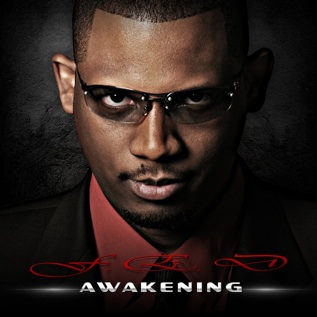
Click on the album cover above to read Kathy's review.
F.E.D: Yes, a very small one for now. It allows me to record ideas, try out different arrangements and make music sheets before going to a more professional studio to record a final product. These days, with technology, it is easier to capture ideas. Back in the days when I first started composing and did not know yet how to write music, I used to put a cassette recorder on the piano and record what I was playing. I still have some of those tapes. Today, you can do that with your phone. I often sing song ideas into my phone so I don't forget them.
KP: Technology is really amazing! Are you getting a lot of comparisons to Yanni with the big, bold sound you have?
F.E.D: I have been getting a lot of that comparison. I have been called the "Black Yanni", the "Haitian Yanni", the "Next Yanni"...
It started when I was still living in Haiti after I had performed his song "Felitsa" at a recital. There is no denying it, he is my idol and he is someone I look up to and aspire to be like. I understand that when you first hear my music, it may remind you of him. But I'm also very confident that the more you listen to my work, you start understanding it, discovering things about me, and accepting my music as being of my own style. To me, being compared to somebody who has achieved so much with his music, and having people see the same possibilities with me is very gratifying and inspiring. I just take it as a compliment.
KP: I agree completely. I can hear Yanni’s influence in your music, but you have a unique style and approach. BTW, I played “Felitsa” for one of my student recitals! Love that song! Are you doing all of the promotion for Awakening yourself? You seem to be exceptionally hands-on.
F.E.D: Yes I do a lot of the work myself. It is true that I am very hands-on and I like things done a certain way but, at the same time, I really don't have much of a choice because at this point I am an independent artist. I don't always have the luxury of hiring people to do certain things. So I have to be part of every aspect of the project from writing the music, to setting up and updating my websites, to artwork design, to promotional work, and everything else in between. I also have to say that I'm lucky to have a small team of family and friends who work hard and try to help me progress as much as they can.
KP: What was the inspiration for the album Awakening?
F.E.D: I always wanted to record an album. I had been composing and performing for a long time but never had the chance to do one. After my last concert there was such a high demand from the audience for a CD that I thought maybe it was time to do it. When I first started thinking about the project, I said to myself that I wanted the CD to literally be an introduction as if I were telling people: "Hello, nice to meet you, meet F.E.D and oh by the way, there is a lot more music where these came from."
There are 12 tracks on the CD. Two of them are tracks that I had written over the years and the others are new compositions made just for the album. I worked on it one song at a time like chapters of a book. I was lucky to find a great engineer and great guest artists to be part of it.
KP: Let’s talk about you and then get back to the music. Tell us a bit about your early life and upbringing.
F.E.D: Well, as far as I can remember, I had a pretty normal upbringing. My brother and I were raised in a typical Haitian family. With a civil engineer father and a pharmacist mother, education was always of the utmost importance in our household. My parents worked hard and somehow managed with their middle class incomes to expose my brother and me to a lot of extra curricular activities in sports and the arts. As far back as I can remember I was always attracted to two things: Architecture and Music.
KP: Are any of your family members musicians?
F.E.D: Yes. My brother plays the piano and the violin. I also found out that my great-grandfather on my father's side was a musician and taught music.
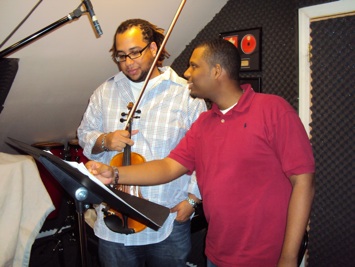
In the recording studio with violinist James Racine.
KP: When did you start playing the piano? How long did you take lessons?
F.E.D: I started taking piano lessons at the age of 6 and continued taking lessons for the next 12 years with only one piano instructor. Her name was André Denis. She and I had a great connection. I only stopped taking lessons after she passed away around the same time I was coming to the US for college.
KP: Do you play other instruments besides piano and cello?
F.E.D: I don't know if this counts, but I played the recorder for a year in High School in Haiti.
KP: Sure it counts! When did you start performing professionally?
F.E.D: Actually it was quite late; I was probably 16 years old. Because my piano teacher was fairly old, she could not produce recitals with her students. So I took lessons but never really performed professionally. It wasn't until after I joined my other music schools, "Vision Nouvelle" and "The Holy Trinity Music School" where I was studying the cello, that I first performed in recitals or in concerts. So my first professional performance was on the cello, but during one of those cello recitals I was given the opportunity to also perform a piano piece. I performed Beethoven's Moonlight Sonata. That was my first professional piano performance in front of an audience. I remember my parents and I took my piano teacher to the concert that day. She was really happy and proud. I'm glad we did that because it was the only time she ever saw me play the piano in public.
KP: How old were you when you went solo?
F.E.D: I was 19 years old. At the time I was playing cello in the "Holy Trinity Philharmonic Orchestra." During free time before or after orchestra rehearsals, I used to go to the piano. My friends would join in with their instruments, and we would play some of my own compositions or pieces from modern composers such as Vangelis, Yanni, Rolf Loveland, Kitaro and others. The school director noticed that and told me that if I could arrange two of these songs, he would give me the opportunity to perform them with one of the orchestras as a soloist. So I made arrangements of "Chariots of Fire" by Vangelis and "Santorini" by Yanni and gave my first concert as a soloist.
KP: That’s impressive! Haiti is known for being a very poor country. I would assume that Port-au-Prince (the capital) is a modern and thriving city. Is that an accurate assumption?
F.E.D: If you look at it from the standpoint of how difficult it is for low income or no income Haitians to live, of course Haiti is poor, and there are many reasons for that throughout our history that would be too much to get into now. However yes, Port-au-Prince being the capital is a little more modern than some of our other cities. Throughout time a lot of people on the outside have come to know Haiti only as a place of misery and hardship, but Haiti's poorness is really not absolute. It could not be further from the truth when it comes to other things such as culture, tourism, music, arts, literature, dance and cuisine. Haiti is a very diverse place and Haitians are very proud and warm people. It is up to people like me to help project a better image of the country. There is a lot of effort being made over there to get back on track and I hope that things continue to progress and that in the near future it will happen.
KP: That’s really interesting. What is traditional Haitian music like?
F.E.D: Just like in other cultures, Haitian traditional music or folk music is the expression of the Haitian soul. Therefore it can be very expressive. Just like almost any kind of Haitian music, it is very rhythmic. It has strong African roots, which can be traced to the Africans who were brought to work on plantations in the Caribbean. Without getting into too much detail, it contains styles like "Rara" music and "Rasin" music. It often contains lyrics with religious philosophies, and can also be politically charged. The song "Ascension" in the album uses a rhythm and a lot of elements from traditional Haitian music.
KP: Your bio mentions “konpa” music, which I had never heard of before. How would you define this style?
F.E.D: "Konpa Dirèk" is one style of Haitian music that was created in the early 50's by a Haitian Sax player named Nemours Jean Baptiste and at the time, this music was a new concept in Haiti. It is more known in the Caribbean and in some places like South America, Africa and the east coast of the US. It is the most popular style of Haitian music and a real asset to the musical art of Haiti. It is to Haitians what pop music is to Americans. In Haitian music history "Konpa Dirèk" is very important. On the technical side, again without getting into too much detail, one of the most distinctive characteristics of "Konpa" music is the consistent pulsating beat. "Konpa" uses instruments like congas, cowbell, drums and the bass guitar to hold a very danceable pattern while singers and other instruments like horns, guitars and others are doing melodies. The song "Fantaisie" on the album has a very strong "konpa" influence.
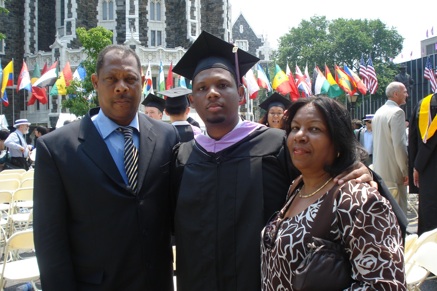
College graduation photo with F.E.D's parents.
KP: What caused you to leave Haiti?
F.E.D: I essentially left Haiti and came to the United States in order to continue my education. When I got here, I first attended school to become a Civil Engineer because that is what my father had studied. I hated it and I was miserable. Eventually I went with what my heart really wanted, which was to be an architect, so I went to architecture school and the rest is history. But music was never left behind.
KP: You earned a degree in Architecture in New York. Are you working in that field as well as music?
F.E.D: Yes. In general it is something that I enjoy, but it is very difficult to balance my time between architecture and music. I hope that someday as my music career progresses I will be able to just focus on making music.
KP: Who and what are some of the other influences on your music?
F.E.D: The main things that influence my music are human emotions and feelings. Even though there can be a lot of different sources of inspiration, it always comes down to how these make me feel. Whether it is things happening around the world, or my personal life experiences, they affect my music.
KP: Who are some of your favorite composers?
F.E.D: Well, I listen to a lot of music, so there are a lot of them. From the older generations I would say Beethoven and Chopin probably. From the more contemporary composers I would say Yanni, Vangelis, Karl Jenkins, and Rolf Loveland of the group Secret Garden. Film music composers like Hans Zimmer and Steven Jablonsky are also favorites. As for Haitian composers I would say Ludovic Lamothe and Occide Jeanty.
KP: Who are some of your favorite recording artists?
F.E.D: Like I mentioned, I listen to so much music it is impossible to list them all. But in today's music scene I like Andrea Bocelli, Marc Anthony, Josh Groban, Marco Antonio Solis, the late Michael Jackson, Sarah Brightman, Helene Segara and Celine Dion. From the older generation, I like people like Julio Iglesias and a lot of the French singers like Joe Dassin. In the Haitian music industry, I like Yole Derose and her late husband Ansy Derose, Beethova Obas and many more.
KP: You mentioned in your bio that you hope to use your music to benefit various humanitarian causes in Haiti and around the world. Please explain.
F.E.D: Well, I see music as a way of communicating emotions and connecting with others. People that don't speak my language can understand my emotions through my music. It is a very powerful tool. When I was younger, I was taught that you should never waste a talent given to you by God. So I made a commitment to myself that if I can use mine to affect less fortunate people's lives in any positive way, in Haiti or anywhere else, I would try to do it. Even with all the difficulties that I encounter along the road, I feel fortunate to be able to do what I do. So hopefully it is something I can continue to expand on with time and touch others with it, too.
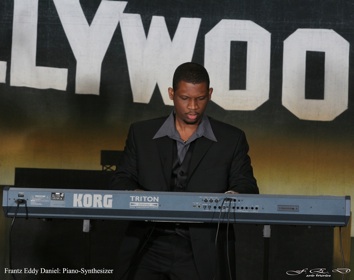
F.E.D Performance picture from the 2006 World Championships Of Performing Arts Team Haiti gold medal winners.
KP: Do you have any concerts planned?
F.E.D: I'm working on some dates for the spring/summer time. The shows are very difficult and expensive to put together, but I look forward to performing the songs from the album live with the band and the orchestra. I think it will be great fun for us onstage and exciting and emotional for the audience.
KP: I’ll certainly try to be there if you come to the west coast! Do you have a particular philosophy you try to convey in your music?
F.E.D: Well, the philosophy in my music is really a reflection of the philosophies I live by. They are, simplicity in life, respect and
acceptance towards others. I have faith in the good of humanity. I believe in myself and try to remain optimistic as I move through life's obstacles. My music is really an extension of who I am.
KP: What has been your most exciting musical moment so far?
F.E.D: There are a couple of great moments that come to mind. The first one is without a doubt representing Haiti at the World Championships of Performing Arts in 2006 in California. For many reasons it was one of the most difficult things I have done. Making it there against all odds, and winning two gold medals and two industry awards with my band members at the time is something truly memorable.
The second moment that comes to mind is my first real concert in 2000 in Haiti where I was performing some of my compositions onstage for the first time with an orchestra. You can say that it was my coming out party. This is when I started believing that maybe I can actually do this.
Making this album was very exciting too! It was a very emotional ride and I learned a lot doing it. But seeing people's response to the music now makes me even more excited about what the future may bring.
KP: If you could have any three wishes, what would they be?
F.E.D:
1) The first thing that comes to mind is that I would have liked to have met my grandfather on my mother's side. He is the only grandparent I did not get a chance to know because he passed away before I was born.
2) Settle down and have a family so that my parents can meet their grandchildren.
3) Just continue to be blessed with the ability to make music that touches people and to have the chance to share it with as many people in as many places as I can.
KP: Is there anything else you’d like to talk about?
F.E.D: I really just want to say thanks to everyone who has helped me get to this point: my parents, my family, my fans…I want to thank everyone who worked on the album Awakening for their effort and dedication. Last but not least I want to thank you for giving me the opportunity of doing this interview. I hope your readers will enjoy it.
Thanks.
KP: It’s been a real pleasure!
Kathy Parsons
March 2012

